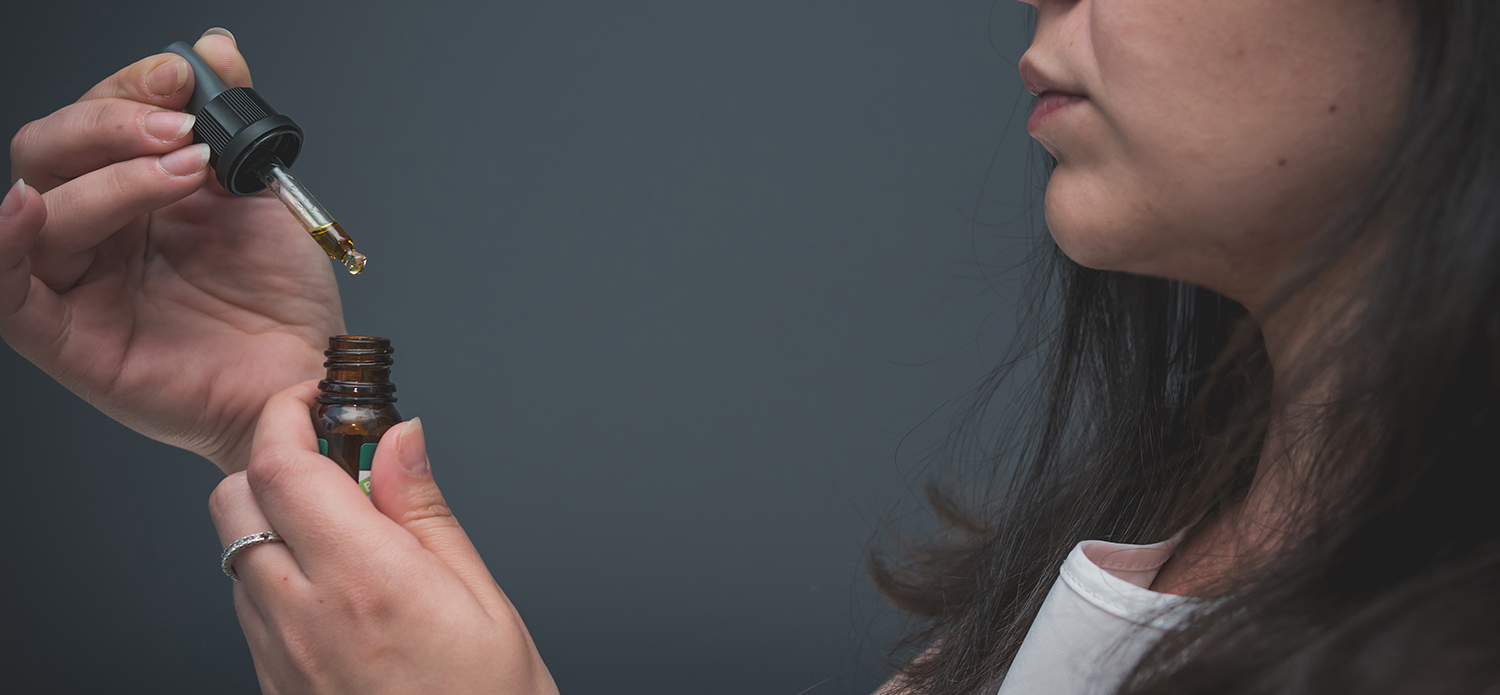


The use of cannabis for medical use is legal in 36 states and the District of Columbia. Cannabis use for recreational use is legal in 18 states, the Northern Mariana Islands, the District of Columbia, and Guam. In other words, the use, sale, and possession of cannabis is legal in the United States as long as it contains less than 0.3% THC.
As cannabis legalization efforts continue to gain momentum, it is also gaining the attention of researchers, manufacturers, investors, and users.
More specifically, cannabis has gained increased popularity as a miracle remedy for various medications, including chronic pain, acid reflux, anxiety, seizures, and even cancer. Although there’s no conclusive research, researchers suggest that CBD may be beneficial to millions of people in the US with dementia.
Yes, researchers are studying the neuroprotective properties of CBD to determine whether it can help with dementias such as Parkinson’s disease and Alzheimer’s disease. This article tries to answer the questions you might have regarding cannabis and dementia. But before that, let’s look at what dementia is and its symptoms.
Table of Contents
What is Dementia?
Dementia is a general term that describes disorders that affect the thinking abilities of an individual. It is not a specific disease like malaria but refers to a number of medical conditions that involve cognitive decline. The most common form of dementia is Alzheimer’s disease, which accounts for about 60-80% of all cases of dementia. The second common cause of dementia is vascular dementia, caused by microscopic bleeding and blockage of blood vessels in the brain.
More than 5 million people in the US have dementia. This condition is more common among older people, although it is not a normal part of aging. Dementia is characterized by significant impaired thinking, memory, and communication.
Dementia results from the damage and death of brain cells or neurodegenerative disease—the condition can also be due to brain injuries, oxygen deprivation, and other diseases such as HIV infection. Reversible cases such as nutritional deficiencies and depression can also cause dementia.
Common dementia symptoms include:
- Confusion and disorientation
- Memory loss
- Difficulty solving problems
- Challenges handling difficulty problems
- Difficulty communicating
- Depression
- Agitation
- Personality changes
- Anxiety
- Hallucinations
- Paranoia
- Among other cognitive and psychological changes
About Cannabis
Cannabis or marijuana is a plant whose dried leaves and flowering parts are used for recreational and medicinal purposes. More than 120 components or cannabinoids make up cannabis. While there’s no conclusive research on what each cannabinoid does, there’s significant information on two common cannabinoids: Cannabidiol (CBD) and tetrahydrocannabinol (THC).
What is CBD
CBD or cannabidiol is a cannabinoid that occurs naturally in the cannabis plant, marijuana, and hemp. Unlike THC, CBD is a psychoactive cannabinoid, meaning it does not cause a “high” effect.
Available research suggests that CBD may help with some conditions, including anxiety, pain, depression, seizures, and nausea.
The Food and Drug Administration (FDA) has only approved Epidiolex, a CBD-based medication to treat certain kinds of epilepsy. That means more research is needed to determine CBD’s effectiveness in treating other diseases.

What is Tetrahydrocannabinol (THC)
THC is the main cannabinoid in cannabis plants responsible for invoking feelings of happiness, sociability, or relaxation. In other words, it is associated with marijuana’s psychological effects. According to the National Institute on Drug Abuse (NIDA), THC resembles the cannabinoid chemicals that the body produces naturally. THC works by attaching to the cannabinoid receptors found in certain areas of the brain. It activates them to impact an individual’s memory, thinking, concentration, movements, coordination, etc.
More specifically, THC stimulates brain cells to release dopamine to create euphoria. It also impacts how the hippocampus processes information—the hippocampus is the part of the brain that helps with new memories.
It takes about 10 to 30 minutes to feel THC effects after ingestion, while the effects can last up to two hours. Common THC effects include anxiety, short-term memory issues, pain relief, sedation, relaxation, among other things.
Can CBD Oil Help with Dementia Symptoms?
Currently, there’s limited research on whether CBD can help people with dementia. However, available research suggests that CBD oil may help with some of the symptoms of dementia, including:
- Agitation
- Anxiety
- Depression
- Difficulty sleeping
Besides, a few clinical trials have been conducted on the effects of certain cannabinoids such as THC and nabilone on behavioral symptoms of dementia. However, these trials are still in the early stages, meaning no conclusive evidence yet.
Another thing to note is that these studies involve short-term use of CBD oil, meaning we still don’t know the long-term CBD effects.
What Research Say About CBD Health Benefits for Dementia
CBD may have the potential to help various dementia-related conditions, including:
- Vascular Dementia
- Alzheimer’s disease
- Parkinson’s disease
- Huntington’s disease
- Dementia with Lewy bodies (DLB)
A 2016 study found that cannabinoids like CBD may potentially alleviate dementia from the brain and boost connections between brain cells. However, as earlier stated, the FDA is yet to approve CBD as a treatment for dementia. The only CBD-based drug that the FDA has approved is Epidiolex.
CBD may benefit dementia patients in different ways, including eliminating dead brain cells, reducing inflammation, stimulating and protecting the brain, and reducing oxygen buildup. It may also help manage stress and anxiety and reduce memory loss for people with dementia.
However, caution is needed before taking CBD oil products for dementia as it may affect the metabolism of other drugs or cause liver injury.
Alzheimer’s Disease
Alzheimer’s is a type of dementia that worsens with time. As researchers dig deeper into the potential CBD benefits, they are also researching whether CBD can help with Alzheimer’s disease. Available studies have suggested that CBD may help reduce the effects of inflammation and brain cell decline in Alzheimer’s patients. It is also thought that CBD may help boost protein levels in brains to improve memory and motor function for people with Alzheimer’s.
Other clinical trials have suggested that the use of cannabinoids could help alleviate the behavioral and psychological symptoms of dementia. However, since these studies are still ongoing, there’s no conclusive evidence that cannabinoids could help with dementia.
A 2019 study published on NCBI shows that CBD may play a role in treating and preventing Alzheimer’s disease—it could potentially suppress memory loss, behavior disorders, and other symptoms. According to the study, Alzheimer’s patients could benefit more if they use CBD and THC together instead of using any of these cannabinoids alone.
Alzheimer’s disease leads to an inflammatory disease if the brain’s immune cells cannot clear the blockages caused by this disease. In turn, inflammation causes more oxygen to be released in the brain, leading to memory loss. Since CBD is an antioxidant, it may help reduce the impact of oxygen stress, which could otherwise impact brain functions.
Another CBD potential benefit is its ability to stimulate brain tissue. Australian researchers Tim Karl and Carl Group researched the potential CBD benefits. According to the study, CBD may help enhance the growth and development of brain cells, helping improve brain functions.
Another study discovered that CBD might help increase protein levels in the brain (IL-33 and TREM2) by clearing beta-amyloid plaque tangles that come with this disease and eliminating dead cells. The study involved giving mice with Alzheimer’s disease CBD where scientists witnessed significant improvements in their thinking abilities and their ability to walk (a common challenge for people with Alzheimer’s disease).
CBD for Vascular Dementia
Vascular dementia involves problems with planning, reasoning, judgment, and memory due to brain damage caused by impaired blood flow to the brain. While you can get vascular dementia if stroke blocks an artery, stroke doesn’t usually cause this condition. Depending on the severity of the stroke and the body parts affected, stroke may or may not impact your thinking.
Other conditions that reduce circulation or damage blood vessels can also cause vascular dementia because they reduce the required oxygen and nutrients in the brain./span>
People with diabetes, high cholesterol, high blood pressure, and smokers are at a higher risk of developing vascular dementia. Common vascular dementia signs and symptoms include:
- Slowed thinking
- Confusion
- Memory issues
- Depression
- Poor organization
- Poor concentration
Based on these symptoms, it is likely that CBD may help with vascular dementia. The US National Institute of Health (NIH) conducted a study on cannabinoids in 2016. The results showed that activating CB2 (cannabinoid) receptors in the brain could help improve blood flow in the blood. Consuming CBD can help activate the CB2 receptors, increasing brain cell activity and reducing brain cell damage, which is associated with vascular dementia.
Parkinson’s Disease Dementia
Parkinson’s disease is a type of dementia that affects the nervous system, mainly in people about 60 years of age and above. More specifically, this condition occurs when the brain cells responsible for producing the neurotransmitter dopamine (that sends messages related to movement to the body) are damaged and die.
This condition is associated with various movement issues such as tremors, balancing issues, stiff muscles, and much more. More specifically, Parkinson’s disease dementia affects one’s cognitive functioning, including the ability to make decisions, the ability to concentrate, and memory.
There’s a likelihood that the therapeutic effects of CBD could benefit people with Parkinson’s disease. As earlier stated, CBD’s anti-inflammatory and antioxidant properties make it beneficial for Parkinson’s disease, dementia, and other neurological disorders. CBD may protect the brain and body nerve cells to reduce disease symptoms, including thinking problems and movement issues.
Additionally, CBD may play a role in reducing anxiety symptoms associated with tremors. According to one study, CBD reduced anxiety and tremors for PD patients above 60 during a public speaking test.
This is a positive thing, especially since Parkinson’s disease impacts dopamine production by the brain. Another past study suggested that CBD could potentially increase dopamine levels, which is beneficial for people with Parkinson’s disease.
Cannabinoid receptors help regulate pain sensitivity, hunger, memory, etc. Parkinson’s disease affects these natural receptors. Some researchers think CBD may help with sleeping issues, tremors, and psychosis. It may also be beneficial for pain, depression, and anxiety.
CBD for Dementia with Lewy Bodies
Dementia with Lewy bodies, also known as Lewy body dementia, is a common type of progressive dementia. It is characterized by abnormal Lewy proteins or alpha-synuclein deposits in the brain. This causes a decline in mental abilities, including thinking, memory, and movement. People with Lewy body dementia might have thinking problems, sleeping issues, movement problems, behavior and mood issues. It might also lead to hallucinations and concentration issues.
Fortunately, CBD may help people with dementia with Lewy bodies. As earlier stated, CBD may have anti-inflammatory properties. It may help reduce rigidity, tremor, bradykinesia, and other motor symptoms and help maintain sleep rhythms.
Some researchers suggest that CBD will not block acetylcholine which this disease affects. For starters, acetylcholine helps with memory and learning. The fact that CBD doesn’t block acetylcholine (like other pain and behavior management drugs) is good news for people with Lewy body dementia.

CBD for Huntington’s Disease Dementia
Huntington’s disease is a genetic disorder that results in the death of brain cells. The early symptoms of this condition include irritability, depression, chorea (involuntary movements), poor coordination, and trouble making decisions. Huntington’s disease symptoms include cognitive decline, difficulty moving, and speaking problems in progressive stages.
While there’s no known cure for Huntington’s disease, some researchers suggest that CBD may help slow the progression of this disease and improve the quality of life of those with this condition.
Research involving CBD for Huntington’s disease is minimal. That means there’s not enough evidence that CBD could help people with Huntington’s disease.
One study involving rats showed that CBD and THC could help slow the progression of Huntington’s disease. In other trials, CBD has been shown to help improve symptoms like chorea and speech issues for people with Huntington’s disease.
CBD has also been shown to provide potent modulatory benefits to the mitochondria, which plays a significant role in how Huntington’s disease progresses. Of course, more trials are required to determine how mitochondrial dysfunction affects Huntington’s disease and whether CBD could be helpful.
However, since CBD may help regulate neurological immune function (both of which play a significant role in the progression of Huntington’s disease) may provide a platform for CBD as a potential remedy for this condition.
CBD for Frontotemporal Dementia
Frontotemporal dementia (FTD) is a type of disorder caused by progressive brain nerve cells in areas behind the forehead (frontal lobes) or regions behind the ears (temporal lobes). FTD leads to depression and psychosis.
FTD is usually treated using antipsychotic drugs. Unfortunately, these drugs may increase the risk of death and thus the need for better treatment options for this disease. This is where CBD comes into play.
Unlike antipsychotic drugs, CBD will not increase the risk of death. Instead, it may help fight inflammation, improve sleep, reduce anxiety, and reduce motor symptoms, including rigidity, tremor, and bradykinesia.
Benefits of CBD for Seniors with Dementia
As you’ve seen above, CBD may help with insomnia, sleep problems, anxiety, and pain relief. Since CBD may help with agitation and anxiety, it may help with symptoms of dementia in seniors.
Dementia impacts the brain and may cause agitation and anxiety for seniors with dementia. As such, this disease can make people violent or cause other behavioral changes. To better understand how CBD may help seniors with dementia, let’s look at how CBD deals with symptoms of dementia.
Inflammation
It is not uncommon to see inflammation around a wound or injury. It’s a natural way for the body to respond to injuries.
Various forms of dementia also cause neuroinflammation. For instance, Alzheimer’s disease leads to the buildup of clumps of proteins in the brain, affecting brain function over time.
With time, inflammation may occur in the area, further affecting how the brain makes connections. Luckily, as stated above, CBD may help reduce inflammation and reduce other symptoms of dementia.

Oxygen Buildup
This issue is related to inflammation in the brain. As expected, more oxygen is released when the brain tissue expands—the more the inflammation, the more oxygen buildup in the brain, and the more the brain loses its functionality.
As a result, the victim may experience memory loss and other brain issues. More oxygen can also be released when a person is stressed, which is common for seniors with dementia. CBD may offer stress relief and the impact of oxygen in the brain.
Brain Function
When not addressed, dementia may lead to the death of brain tissue or affect its functionality for good. However, this process won’t happen overnight—it will take time.
Some trials have shown that CBD may help stop or reverse memory loss or loss of brain function for seniors with dementia. CBD may also help stimulate the brain to make connections and delay the effects of dementia in seniors.
Could Cannabis Make Dementia Worse?
There’s a growing concern on the effects of cannabis use on cognitive function due to its effects or sedation. While the focus is to test whether cannabis could help with dementia, researchers are focusing more on getting drugs with no negative impacts on people’s lives.
Both THC and CBD may help with dementia symptoms. THC is a psychoactive cannabinoid and is used recreationally. On the other hand, CBD is not psychoactive and may help with anxiety, nausea, and inflammation.
However, more research and trials are required before concluding that cannabis can help with dementia. The health and wellbeing of the patients are of great concern during these trials. There’s no proof that using cannabis in an uncontrolled setting will benefit dementia patients. In fact, sometimes cannabis use can involve risks such as thinking problems, anxiety, short-term memory issues, and coordination issues.
The use of cannabis in older adults should be approached with caution. Some studies suggest that heavy cannabis use can affect processing speed, attention, verbal memory issues, and coordination in both young and middle-aged adults. The effects might be significant in people with pre-existing brain problems or cardiovascular conditions.
Various studies have shown that CBD is well-tolerated and has few side effects, including diarrhea, nausea, drowsiness, dry mouth, mood changes, and fatigue. On the other hand, THC has been associated with impaired driving in young adults and older adults.
How to Find the Best Cannabis Dosage for Dementia?
Finding the proper CBD dosage for any condition, including dementia, is paramount. However, due to FDA guidelines, it’s challenging to advise on the best CBD dosage for conditions such as dementia.
Various factors determine the proper CBD dosage for an individual, including body weight and chemistry, the concentrations of the cannabis product, and the conditions being treated. As such, it’s advisable to talk to a healthcare professional before taking any CBD product to determine the right dosage for you.
Alternatively, you can use the Stepwise Dosing procedure to find the right dosage for you. Ideally, this procedure involves establishing a baseline dosage and then increasing gradually after a set period. This procedure is based on the fact that everyone responds differently to cannabis, and therefore, there’s no standard dose for everyone.
The idea is to start low and go slow. For instance, you may want to start with a small baseline dosage of 3 mg twice a day. Take note of how that amount interacts with your body. After about seven days, you may want to increase or reduce the dosage depending on the effects you want.
How to Take CBD
Having read this far, you likely want to try CBD for dementia and wonder how to use it. There are various ways to consume CBD apart from smoking. They include:
Sublingual Products
Sublingual products are tinctures or solutions obtained after a cannabis flower is soaked in oil or alcohol, including oils, sprays, and lozenges.
Taking CBD sublingually means placing it under your tongue and holding it in your mouth for about 30 seconds before swallowing it. Unlike ingesting CBD, taking CBD sublingually means it won’t go through the digestive tract to feel its effects—you’ll feel the results much faster.
Edibles (Ingestion)
CBD edibles are another popular way to take CBD. This can involve adding CBD oil to your food to neutralize its taste or taking CBD gummies or lollipops.
Taking CBD edibles offers the most discreet way to take CBD. However, it takes much longer to feel the effects of CBD gummies. As such, you need to be much careful with your dosing to avoid taking much more than you can handle.
Topicals
Another way to take CBD is to apply it to your skin. Great examples of CBD topicals include balms, creams, lotions, and transdermal patches. Topicals are a great option to treat localized pain, eczema, and other such skin conditions.
Pills
CBD pills will come in handy if you are looking for an easy way to take CBD. While they are easy to dose, they take longer to take effect than other forms.

Should You Try CBD for Dementia?
Does cannabis help or cause dementia? We can only get the right answer to this question when more research is done and there’s conclusive evidence. Some research suggests that CBD may help with dementia. On the other hand, other trials suggest that long-term cannabis use can increase the risk of developing Alzheimer’s.
While some studies suggest that CBD may help treat conditions associated with dementia, including anxiety and depression, its best thing is to talk with a health professional before using cannabis to treat dementia.
